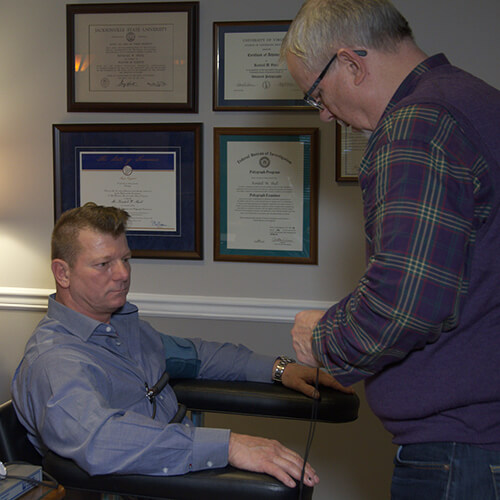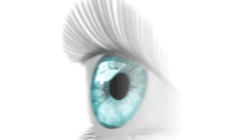
Have you heard the word; ‘polygraph’ tossed out during your favorite dramatic show? There was probably a scene where investigators strap a guy in a chair, shine a bright light above his head, and get in his face trying to trill into him to derive answers! As the sweating man strapped down spews information, other men in suits monitor a machine and decide if this person is telling the truth. This isn’t precisely how polygraph exams work in the real world. Obviously, directors need to create drama for entertainment to capture an audience for their hour-long show. Aside from what you’ve seen on TV or in the movies, do you know much about polygraph exams? If you want to learn how they’re executed in the real world by experts like Ken Shull, read on.
What Exactly is It?
Let’s take a step back and dig into how a polygraph exam works. A polygraph is – “a device or procedure that measures and records several physiological indicators such as blood pressure, pulse, respiration, and skin conductivity while a person is asked and answers a series of questions.” With such a mouthful of words, it’s no surprise that an expert like Ken Shull would be required to oversee and administer a test. To simplify it, a polygraph (often referred to as a lie detector) is a machine hooked up to a person being investigated. It measures physical responses when that person answers questions. It’s used to determine if the one being interviewed is being truthful.
How It Works
When a person undergoes a polygraph, they’re attached to sensors that record physical responses during a series of questions the investigator will ask. The sympathetic nervous system plays an essential role in the test. It’s the fight-or-flight part of being a human being, and something humans can’t consciously control.
The testing process generally involves four parts -
- Pre-test interview – will include discussion on the test with Kenn Shull or a licensed examiner; this is the ‘review’ part of the process and can be the most time-consuming since everything is explained and reviewed during this part.
- Chart collection – questions reviewed during the pre-test will be asked while the person in question is hooked up to the machine, and physiological responses are recorded. Ken Shull may ask questions multiple times to record an accurate response.
- Since Ken Shull is the only one in the world with a Masters’s in Polygraph, he’s become a foremost expert in understanding our uncontrollable physical responses to being questioned. When he administers a test, he watches for specific physical responses recorded by the machine -
- Pulse
- Respiration rate
- Perspiration
- Analysis – This phase includes just that; an analysis of results from the questioning.
- Delivering Results– results are reviewed, and the person in question may discuss the findings and overall process with Ken Shull or the examiner.
Who Would Want One?
All walks of life may benefit from seeking out a polygraph test. With his business, Ken Shull has administered tests to many client types.
The reasons will vary regarding why someone would seek a lie detector test. These could range anywhere from suspected cheating spouses and child custody cases to employment verification and proof of innocence.
Here are just a few of the possibilities -
- Private individuals – There could be an endless list of reasons that fall under this category. Those who suspect adultery, child abuse, stealing, etc., may seek Ken Shull’s services. Individuals may request surveillance services to ensure the person in question is doing what they claim. Or, an individual may seek help with a missing person's case. The list can be endless.
- Businesses – often used for pre-employment testing. It’s important to note that employers can’t use a lie detector to determine if an employee is stealing supplies or acting against a company’s wishes. There are legalities tied to what’s allowed.
- Attorneys – to assist in civil or criminal law cases; a polygraph can be used to bolster a case or determine if someone’s trustworthy. This can be common in cases where hard evidence is lacking.
Private investigators must pass exams and obtain licensing to run their businesses, and there's a reason for that. They serve as experts in the detective field and must know and abide by the local and governmental laws of what's permissible.
Private investigators offer a wealth of services and help their clients arrive at the desperately desired truth. Knowing precisely what a private investigator can and cannot do will help you make an informed decision if you ever come across the need for one.
The realm of polygraph testing can become a complex spiderweb once you dig into what it does and how. It’s been used since the early 1900s and is still relevant well over a century later. Those who need to determine the truth will continue to seek professional polygraph services as long as there is suspicion around the truth.
Uncover the truth!
--
Ken Shull served as a Special Agent with the FBI for almost 25 years and was head of the FBI Polygraph program until his retirement in 2001. At that time he set up the Kendall Investigations practice as a private investigator in Knoxville, TN offering Polygraph services, private investigations, and security guards. Ken is a member of the American Polygraph Association and The American Association of Police Polygraphists.
The Truth is Still the Truth Even if No One Believes it, A Lie is Still a Lie Even if Everyone Believes it.
